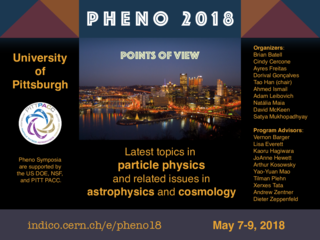Speaker
Description
Sub-MeV dark matter remains unconstrained by direct detection, and there are several well-motivated candidates in this mass range. Electron recoil experiments have been proposed as a technique to detect such a light particle, but little is known about the extent of cosmological restrictions on a generic light species coupled to electrons. We study cosmological constraints on a light dark matter particle coupled to electrons in the framework of an effective field theory, which subsumes a broad class of models with a heavy mediator. We study constraints from primordial nucleosynthesis, the dark matter relic abundance, and the effective number of neutrino species ($N_{\mathrm{eff}}$) at CMB formation. We demonstrate the implications of our results for detection prospects in electron recoil experiments, and highlight the regions of parameter space which may be amenable to direct detection by such techniques.

